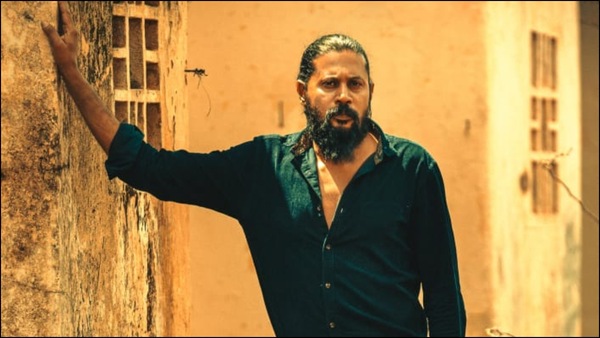Exclusive | 'Kaatera', 'Ghost' fame Maasthi talks the subtle art of penning dialogues for a Kannada film
Maasthi Upparahalli talks to OTTplay about what a dialogue writer must do to accommodate the sensibilities of different filmmakers, the scope and much more

Last Updated: 08.34 PM, Jan 05, 2024
In a career spanning a little over a decade, Maasthi Upparahalli has worked with several directors of repute, including Duniya Suri, Yogaraj Bhat, Tharun Sudhir, MG Srinivas and Duniya Vijay, among others. As a dialogue writer, he has come to become a common feature in many, if not all, big-ticket Kannada films of recent times.
But what's more interesting is the fact that his filmography boasts titles of varied genres such as gritty crime thrillers, heist action films, comedies, sports films and even coming-of-age dramas. Add an entry like 'Kaatera' to it and Maasthi's repertoire, already, seems to have come a full circle.
"I had apprehensions in the beginning about whether I can pull off a certain genre," he says, when asked about how he manages to work with filmmakers of different sensibilities.
Also Read: Exclusive | Maasthi Upparahalli on Kaatera, writing lines for the Challenging Star Darshan and more
"When I wrote dialogues for 'Tagaru', I felt I could work in this gritty "grey" world of cops and criminals. With that grasp, I wrote 'Salaga' and felt more confident about my skills in that genre. 'Ayogya', interestingly, then came as a comedy, 'College Kumar' was an emotional film about a father-son bond and 'Guru Shishyaru', which is set in a different era, made me write "clean" dialogues. And you add 'Hondisi Bareyiri' to it, which is almost a coming-of-age drama, you sense that as a writer, you keep learning and growing," says Maasthi.
However, he says, it's all possible only when you dedicate time to get to know the director first. "You have to travel with the director first. You have to get to know them, understand what they want and extract those ideas from within them in those initial 15-20 days. You document those thoughts somehow and you get 30% of the film's dialogues right there. Tharun Sudhir, Suri, Ramenahalli Jagannatha, Jadesh K. Hampi, Duniya Vijay sir - each of them is a unique filmmaker and I must get to know them initially to write dialogues for them," he shares.
Also Read: Kaatera audience review - Netizens super impressed with Maasthi's dialogues, V Harikrishna's BGM
That said, one wonders about the specific role that a dialogue writer plays in a project. Does he get to only fill in the gaps of a screenplay or do his words withhold the power to change the structure of a scene?
"See, you can only nudge a scene in a particular direction but you can never "bend" its essence. That is to say that you can add more depth to it with your dialogues, but they must not change the whole structure of that scene. And in those scenarios when you do change things up, you must offer a perfect reason to the director or screenwriter," says Maasthi.
Any instance of him changing things up entirely? "Oh, there are quite a few but 'Tagaru' would be the most memorable one. Forget the structure of a scene, I have changed the whole characterization - initially, Bhavana ma'am's character was meant to be an interior designer in the film but I said that the profession doesn't give me the scope required to write dialogues. Mainly because you want to extract metaphors from a particular profession. So, I made her a dentist in the film and those who have seen 'Tagaru', will know the role her profession plays ultimately," adds Maasthi before signing off.
